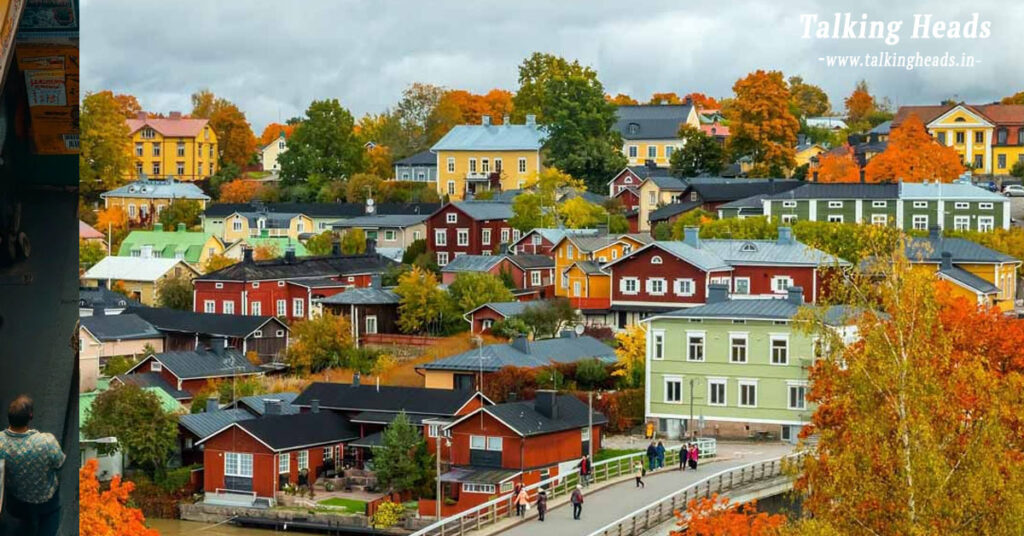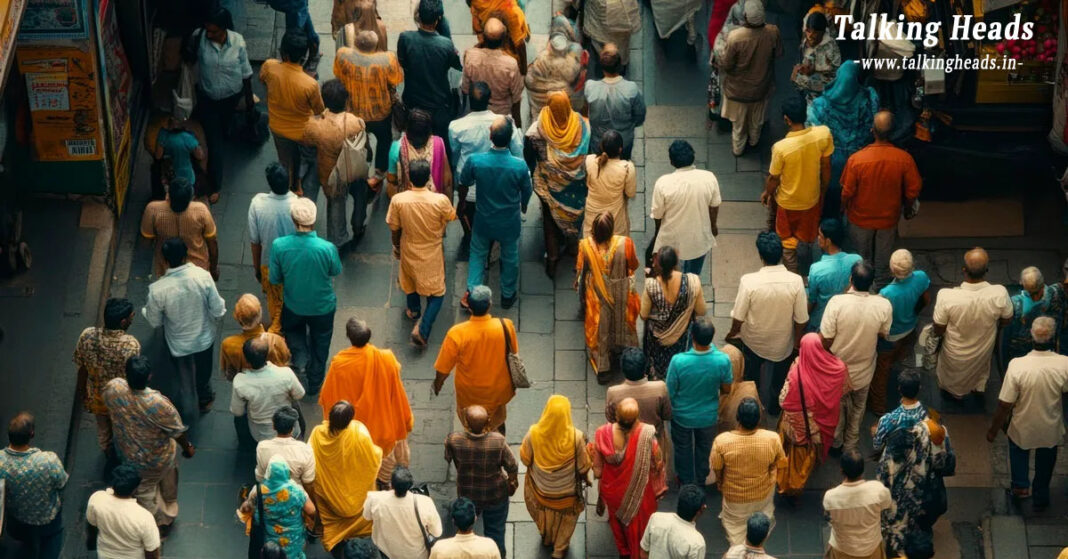This ranking comes from the 2025 World Happiness Index, which was released on March 20, World Happiness Day, by Oxford University’s Wellbeing Research Centre. The index ranks 147 countries based on factors like health, wealth, social support, and freedom. While Finland holds the top spot, India ranks lower than its neighbours Pakistan and Nepal, showing that there are still several challenges to overcome when it comes to improving happiness in the country.
Finland Takes the Lead Again:
Finland has once again secured the top position in the World Happiness Index with a score of 7.7 points. The Nordic country has maintained this spot for eight consecutive years, with Denmark, Iceland, and Sweden also staying in the top four. These countries consistently perform well in the rankings, thanks to their strong social systems and high standards of living, which contribute to their citizens’ happiness.

India’s Ranking in the Happiness Index:
India has improved its position in the 2025 Happiness Index, moving up to 118th place with a score of 4.3, compared to 126th last year. This shows that India still faces significant challenges in terms of social well-being and happiness compared to its neighbours. The ranking is based on surveys asking people to rate their lives and overall happiness, which helps researchers measure the general well-being of citizens in each country.
Why India Struggles to Rank Higher:
India’s relatively low position in the happiness rankings can be linked to several factors. These include income inequality, corruption, limited social support, and a lack of trust in institutions. These issues contribute to a lower quality of life and less overall happiness for many people in the country. The World Happiness Index study, conducted by Gallup and the UN’s Sustainable Development Solutions Network, examines how people feel about their lives based on various aspects like their personal freedom, health, and social support.
Countries Facing Conflict Rank Higher:
Interestingly, countries dealing with war, political instability, and economic hardship, such as Ukraine, Iran, and Venezuela, have higher happiness rankings than India. This suggests that happiness is not only about economic wealth or peace, but also about other factors like community support and trust in society. Despite its challenges, Israel ranks 8th, and Costa Rica, which joined the top 10 for the first time, is ranked 6th. These countries show that even in difficult times, a sense of connection and community can lead to higher happiness levels.
What Affects Happiness Around the World:
The World Happiness Index looks at several factors when measuring happiness, including health, income, social support, freedom of choice, generosity, and corruption. These elements play a huge role in how people feel about their lives. Gallup’s CEO, John Clifton, explained that happiness is not just about money or development. It’s about trust, connections, and knowing that people around you will support you. This highlights the importance of strong social networks and a sense of belonging in creating a happy society.
The U.S. Drops to Its Lowest Rank:
In a surprising turn, the United States has dropped to its lowest-ever ranking in the World Happiness Index, now at 24th place. This is a big drop from 2012, when it was ranked 11th. The decline in the U.S. ranking reflects ongoing challenges like inequality, political divisions, and social fragmentation, which have had a negative impact on the well-being of many Americans, despite the country’s wealth.
Why Nordic Countries Are Happy:
Countries in Northern Europe, particularly the Nordic nations, continue to lead the rankings due to their well-established social safety nets, trust in public institutions, and a focus on equality and sustainability. Finland, Denmark, and Iceland are consistently at the top, with strong public health, education, and welfare systems that contribute to their citizens’ happiness. These nations show that a well-functioning society focused on the well-being of all citizens leads to higher happiness levels.
Key highlights:
- India improves to 118th place but still ranks below Pakistan (109th) and Nepal (92nd).
- Factors like inequality, corruption, and limited social support are holding India back.
- Countries facing challenges like conflict and economic struggles often rank higher due to strong community support.
- Social support, trust, and connections play a huge role in happiness, as seen in the Nordic countries.










